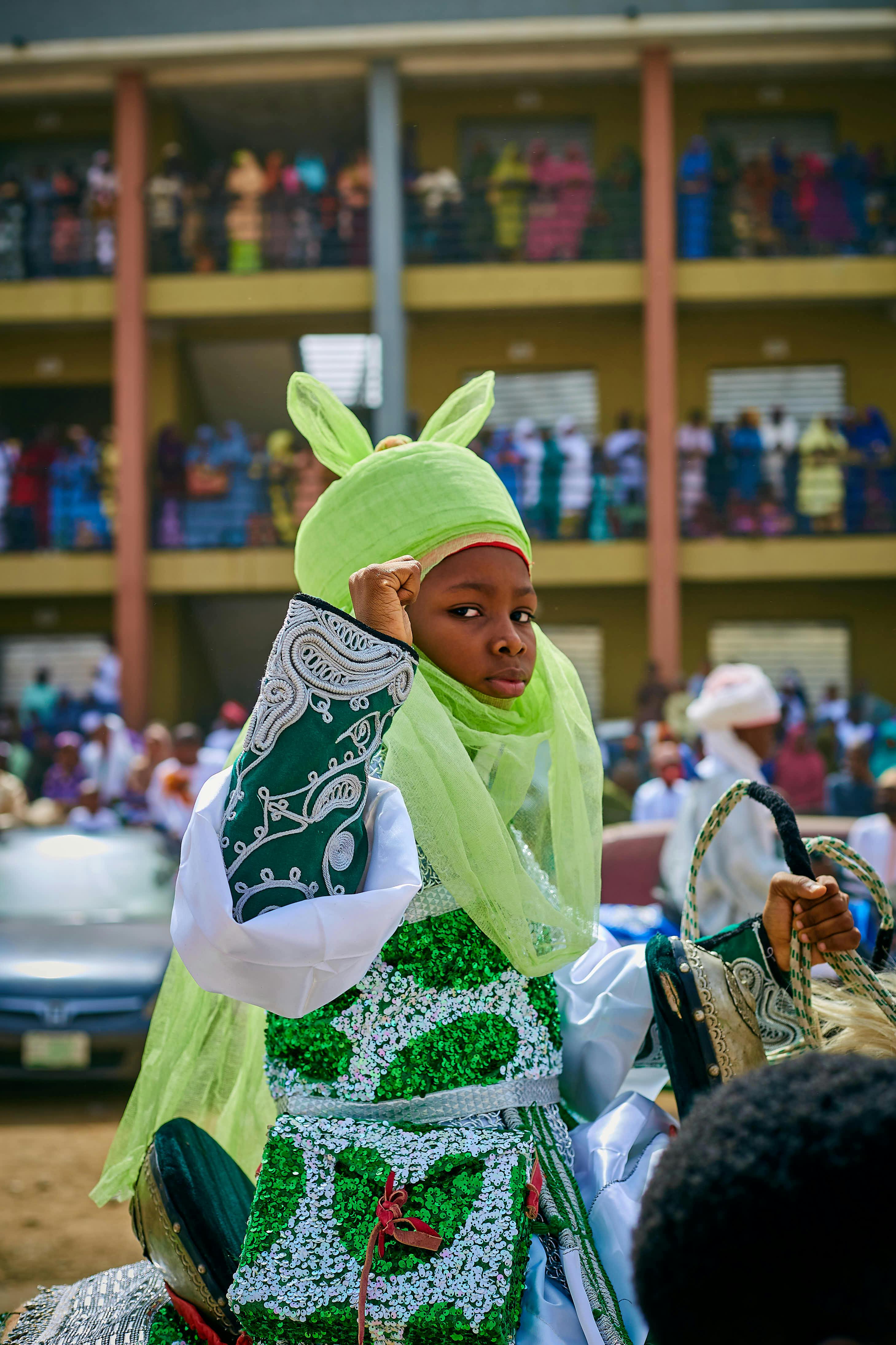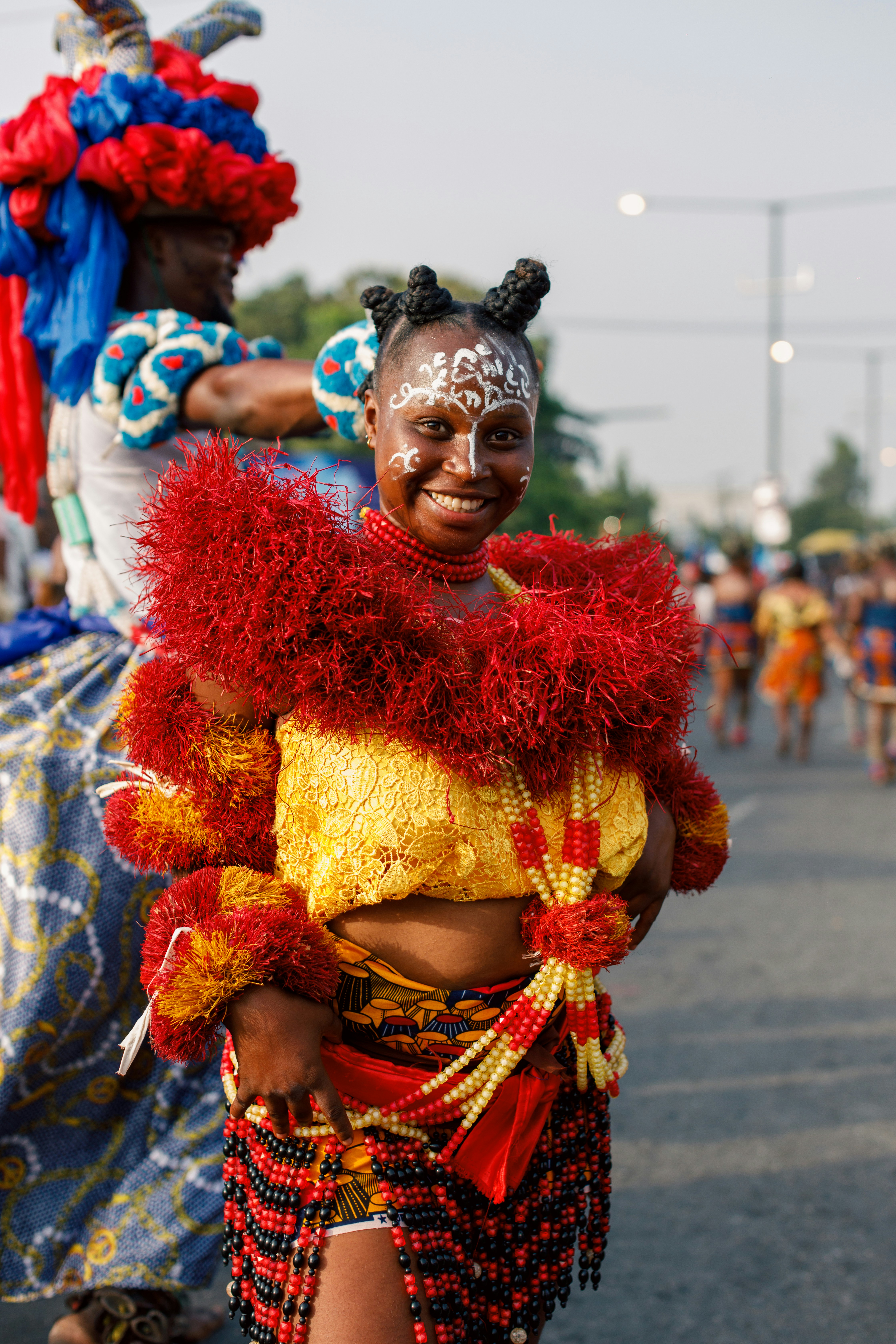

KEY FACTS AND FIGURES |
|
|
Estimated number of ethnic groups
|
250 |
|
Estimated number of languages |
Over 500 |
| Major religions | Islam, Christianity, other indigenous religions |
Nigeria is a mosaic of diverse ethnic groups, each contributing to its vibrant cultural landscape. With over 250 ethnic communities, including the Hausa, Yoruba, and Igbo, Nigeria offers a unique blend of traditions, languages, and artistic expressions. The country’s cultural identity is celebrated through music, dance, festivals, and cuisine, making it a hub for anyone eager to explore authentic African heritage. Nigeria is a culturally rich nation, home to a diverse and resilient population. The mosaic of ethnicities, languages, and ways of life come together intriguingly, reflecting the country's complex identity.
With over 250 distinct ethnic groups, Nigeria is one of the most ethnically diverse countries in the world. The three largest groups are the Hausa-Fulani in the north, Yoruba in the southwest, and Igbo in the southeast. Other groups such as the Ibibio, Kanuri, Nupe, Ijaw, and Edo contribute richly to the nation's cultural landscape.
Though English is the official language, most Nigerians are multilingual, speaking one or more indigenous languages alongside English. Nigerian Pidgin — a blend of English and local expressions — is an informal lingua franca, that fosters communication across communities. One of Nigeria's standout qualities is the use of language that weaves heritage and wisdom into everyday communication. Proverbs, storytelling, songs, and other expressions speak of communal values.
Each ethnic group expresses its cultural pride through festivals, dress, customs, and art. The Hausa Durbar features regal equestrian parades rooted in Islamic heritage; the Osun-Osogbo Festival of the Yoruba showcases spiritual rituals and colorful processions; the Igbo New Yam Festival celebrates harvest and thanksgiving. Events such as the Nfam Festival of the Efik and the Idoma Carnival in Benue also offer vibrant expressions of local identity. Traditional attires, like the Ankara (Yoruba), Kaftan (Hausa-Fulani), and Akwete cloth (Igbo) are central to Nigeria's cultural expression.
Music and dance are central to Nigerian life, from traditional rhythms using talking drums and shekere to contemporary Afrobeats that have achieved global acclaim. Visual arts—from ancient Nok terracottas and Igbo-Ukwu metalwork to modern artists—highlight Nigeria's enduring creative legacy. Visual arts, rooted in Nok terracottas and Igbo - Ukwu metalwork, have continued as modern Nigerian artists gain global recognition.
Home to considerable communities of Muslims, Christians, and other indigenous religion practitioners, religion in Nigeria shapes social norms and other elements of personal identity. Religious practices often blend traditional beliefs with modern faiths, shaping how communities relate and find meaning.
Nigerian cuisine is flavorful, aromatic, and traditional. The famous Jollof rice, pounded yam with ofe nsala, suya, amala-ewedu, afang soup, and banga soup are a few dishes that speak of culinary diversity. Staples like rice, yam, and cassava are savored in various ways. Food in Nigeria plays a key role in celebration, hospitality, and communal bonding.
With a large and dynamic youth population, Nigeria is brimming with talent and ambition. Nollywood ranks among the world ’s largest film industries, and Nigerian innovation in music, literature, and entrepreneurship continues to inspire globally. At its core, Nigeria is a nation where tradition and progress meet — embodying resilience, creativity, and cultural pride.
Nigerian music is globally renowned, blending traditional rhythms with contemporary styles. Genres like Afrobeats, Highlife, and Juju music reflect the country's musical evolution. Dance is an integral part of the culture, with each ethnic group showcasing unique movements that narrate stories or celebrate milestones.
Nigeria’s traditional arts are a reflection of its history and creativity. Intricate beadwork, sculptures, and textiles like the Yoruba Aso-Oke fabric showcase the craftsmanship passed down through generations. The Nok Terracotta sculptures, dating back to 500 BC, are particularly famous, representing some of the earliest African art forms.
Festivals play a central role in Nigerian culture, uniting communities and showcasing their traditions. The Eyo Festival in Lagos is a colorful display of masquerades, while the Durbar Festival in northern Nigeria features majestic horse parades. These celebrations are not just entertainment but also a way of preserving Nigeria's rich history and values.
Nigeria’s culinary culture is as diverse as its people. Staple dishes like Jollof Rice, Egusi Soup, and Pounded Yam are flavored with rich spices and local ingredients. Meals are often accompanied by festive gatherings, reflecting the community's warmth and hospitality.
With over 500 languages spoken, Nigeria is a linguist's dream. Oral storytelling remains a vital tradition, with folk tales and proverbs passed down to preserve history, teach values, and entertain. By exploring Nigeria's culture, visitors can gain a deeper appreciation of the country's vibrant history, creativity, and spirit. These traditions continue to thrive, offering a window into the heart of Africa.